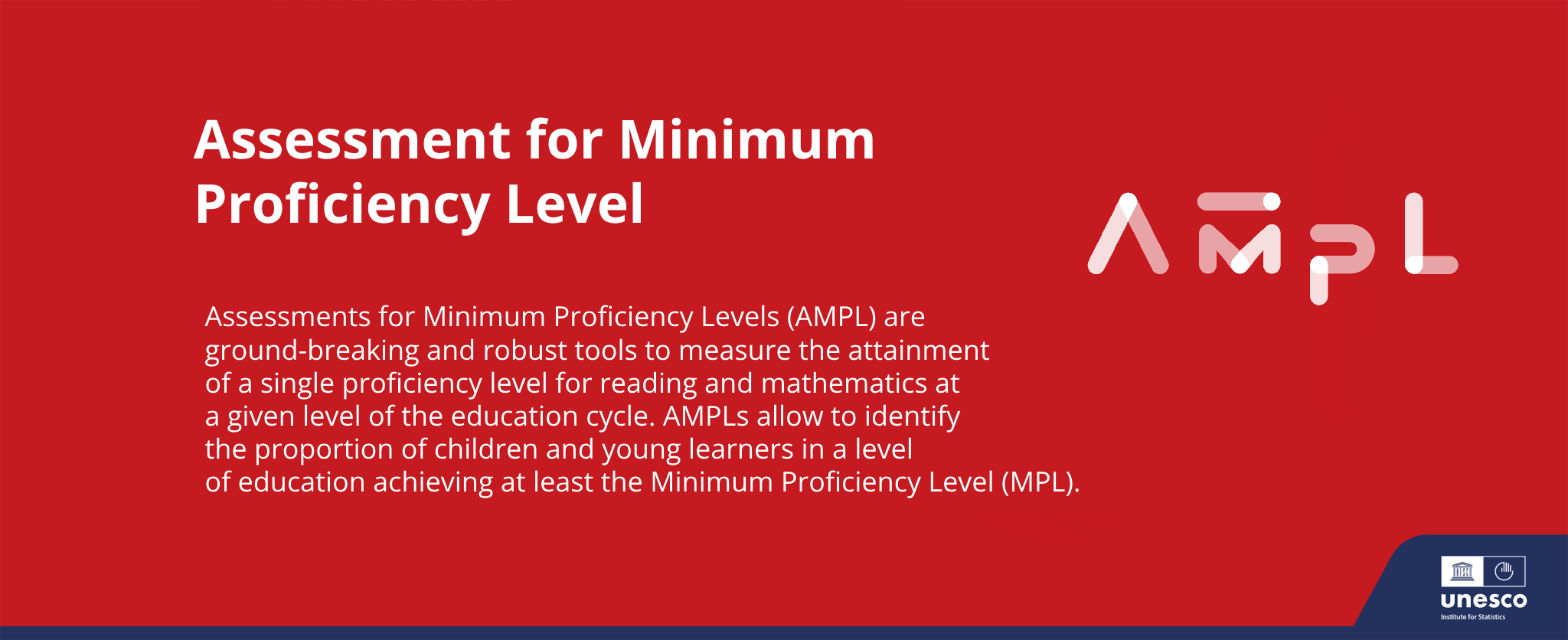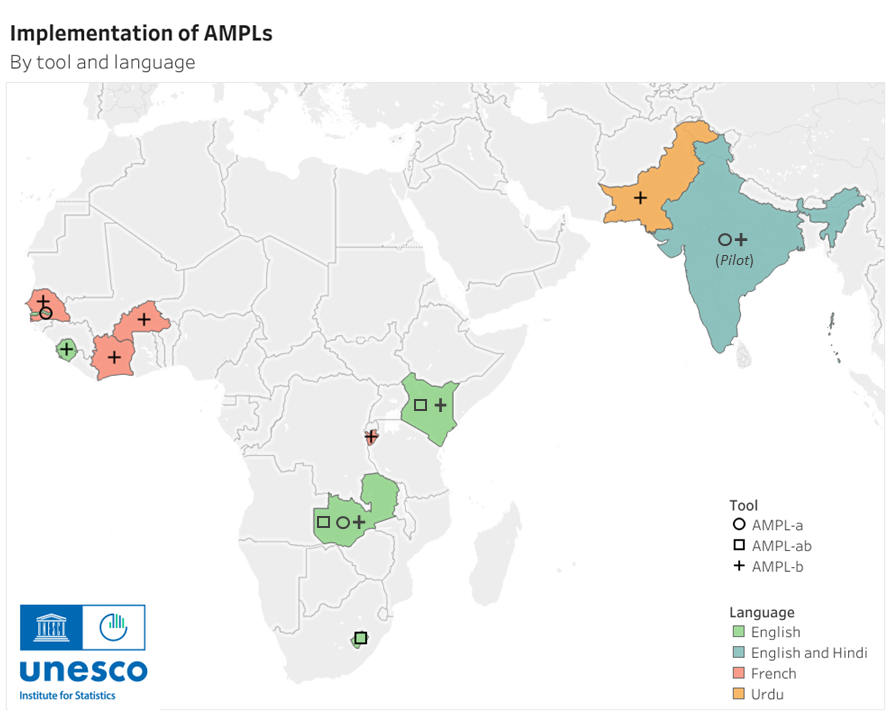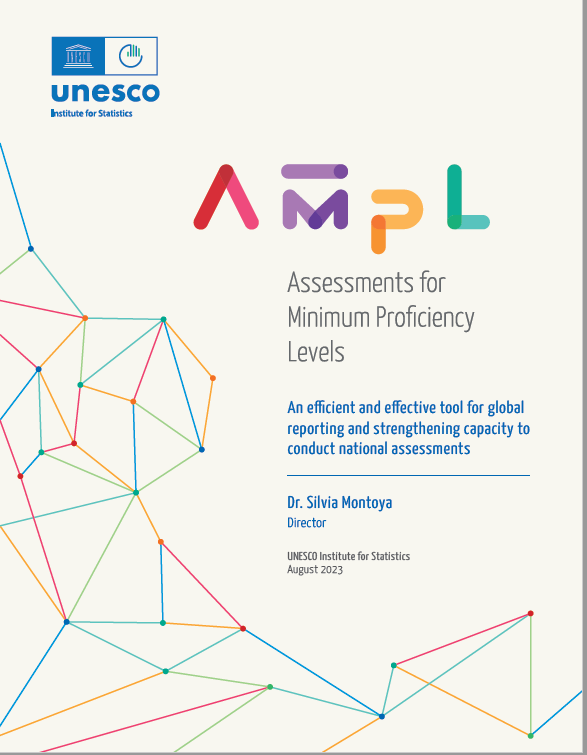
What Is Asssesment for Minimum Proficiency level (AMPL)?
Assessments for Minimum Proficiency Levels (AMPL) are ground-breaking and robust tools to measure the attainment of a single proficiency level for reading and mathematics at a given level of the education cycle. AMPLs allow to identify the proportion of children and young learners in a level of education achieving at least the Minimum Proficiency Level (MPL). This enables countries to produce internationally comparable learning outcomes data to report on the global indicator SDG 4.1.1.
The development of the AMPL is a significant step forward and has the potential to align national and cross-national assessment programs to a single set of global standards in mathematics and reading as articulated in SDG 4.1.1.
SDG 4.1.1: Proportion of children and young people (a) in grades 2/3; (b) at the end of primary; and (c) at the end of lower secondary achieving at least a minimum proficiency level in (i) reading and (ii) mathematics, by sex.

Development
The AMPLs are specifically calibrated modules to the global definition of MPL. They have been initially created to monitor indicator 4.1.1b. as part of the Monitoring the Impacts of COVID-19 on Learning Outcomes (MILO) study in 2021 and were developed originally in English and French.
The AMPL modules in reading and mathematics are part of a toolkit. This toolkit provides an affordable methodological option for countries to measure learning and to develop capacity to regularly generate, analyse and report learning data, as well as monitor progress towards SDG 4.
The AMPL a and b project aims to measure and analyze the performance of students at the end of lower and upper primary using an assessment that aligns with the Global Proficiency Framework (GPF), so that assessment results can be scaled to international benchmarks, reporting against SDG 4.1.1 (a) and (b).
Documentation
AMPL: an efficient and effective tool for global reporting and strengthening capacity to conduct national assessments | English



